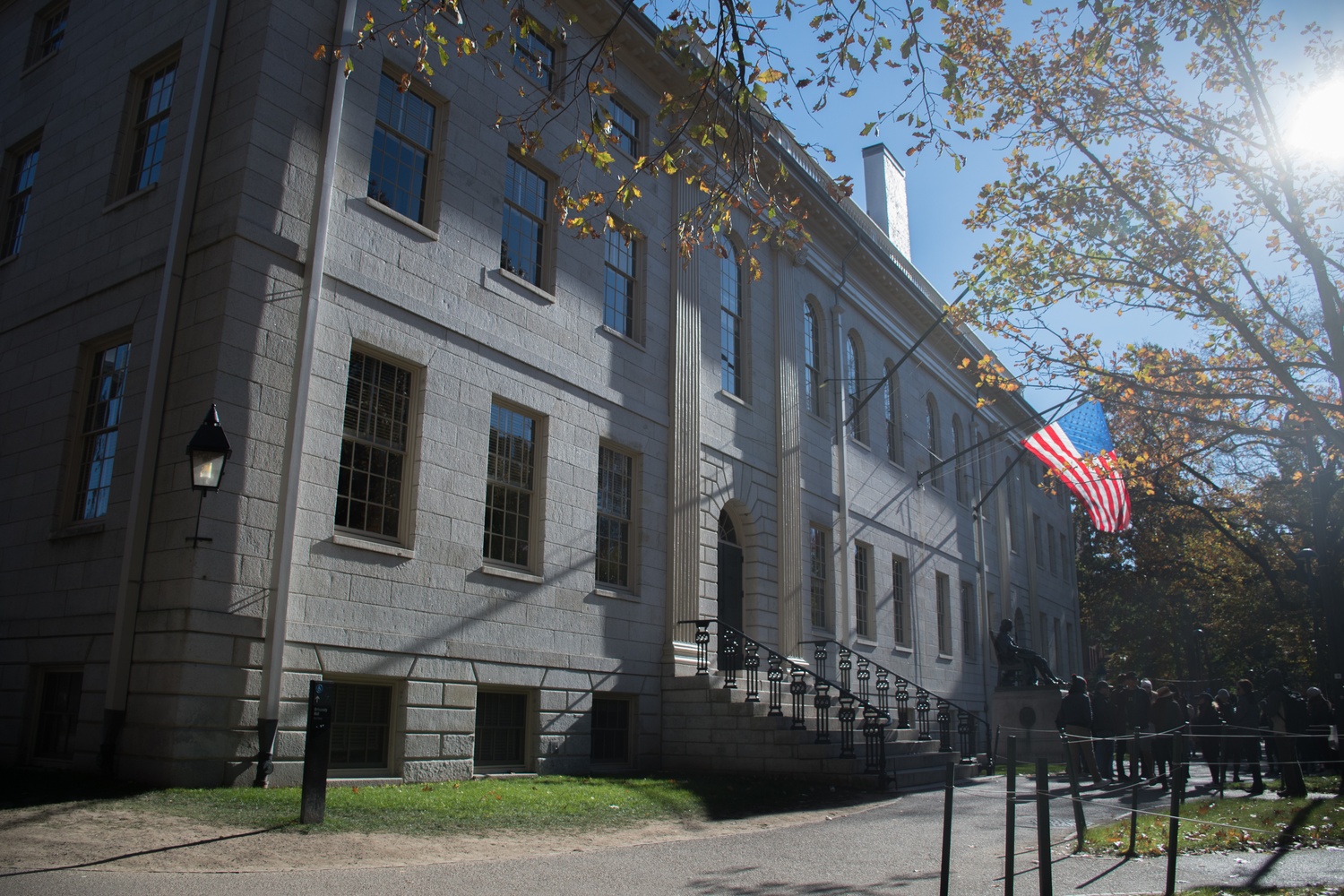
News
Summers Will Not Finish Semester of Teaching as Harvard Investigates Epstein Ties

News
Harvard College Students Report Favoring Divestment from Israel in HUA Survey

News
‘He Should Resign’: Harvard Undergrads Take Hard Line Against Summers Over Epstein Scandal

News
Harvard To Launch New Investigation Into Epstein’s Ties to Summers, Other University Affiliates

News
Harvard Students To Vote on Divestment From Israel in Inaugural HUA Election Survey
Arts and Humanities Division Launches Public Culture Project to Promote the Humanities in Public Life

Harvard’s Division of Arts and Humanities launched its inaugural Public Culture Project to encourage philosophical inquiry at Harvard, with the aim of addressing increasing polarization in the U.S. and reinvigorating public life.
The Project will involve a series of public conversations between speakers from fields such as government, business, and technology to engage in questions about education and work, the role of artificial intelligence in human lives, and the role of God in the U.S., among others.
Dean of Arts and Humanities Sean D. Kelly, who is overseeing the Project, said his goal was to make Harvard “into a place where complicated, difficult questions are on the table, and they’re talked about in a way that brings together people from different views.”
Kelly cited the decline in enrollment in the arts and humanities among Harvard students, paired with his interest in public philosophy, as the inspiration for the program. The Project serves as a continuation of a broader effort to promote the humanities, which began last year with the introductory courses initiative.
Government Professor Ryan D. Enos — one of the initial three members of the Project’s Faculty Board — said the initiative began with a “common concern that there are divisions characterized in American society that need to be studied and thought about.”
“Among a lot of people in the Harvard community — including students and faculty and staff, but also in the larger American public — I think there’s a real hunger to ask, what is the public culture of our country and of our university and of other institutions?” he said.
The Faculty Board, which also includes Law Professor Ruth L. Okediji and English Professor James Wood, and the Advisory Board, which currently only involves Utah Governor Spencer J. Cox, will expand as the Project develops, according to Kelly.
The first event will take place on Oct. 1, focusing on how digital technology is transforming “the way we think, feel, act, and understand the human condition,” according to the Project’s website. Another event scheduled for the spring is centered around the role of God and spirituality in shaping the U.S.
In its later stages, the Project will also host and produce The Public Culture Podcast, which will feature discussions with public figures about the future of American public life. The Project will also host a large public conference slated for next fall, titled “America at 250: Searching for the Soul of a Nation,” and a series of roundtables.
Program Director Ian Marcus Corbin said the Project further aims to address a collective sense of feeling “adrift” and “alienated” from the public sphere.
“It’s a relatively philosophical moment in America,” he said. “We really want to try to find a way to connect with that chain of energy. We want to be able to bring the questions that actually matter to an actual 19-year-old.”
Program Associate Mira Kaplan underscored the importance of bringing the humanities into all facets of public and private life.
“I think any sort of involvement in the humanities just deepens a person’s life,” she said.
Kelly added that the hope of the Project is to center the humanities in conversations between people from a wide range of backgrounds and disciplines.
“It’s really about bringing the life of the mind back to the university, the most fundamental version of it,” Kelly said. “Its like standing before the universe, and saying, ‘Why?’”
—Staff writer Ellen P. Cassidy can be reached at ellen.cassidy@thecrimson.com.
—Staff writer Catherine Jeon can be reached at catherine.jeon@thecrimson.com. Follow her on X at @cathj186.
Want to keep up with breaking news? Subscribe to our email newsletter.
